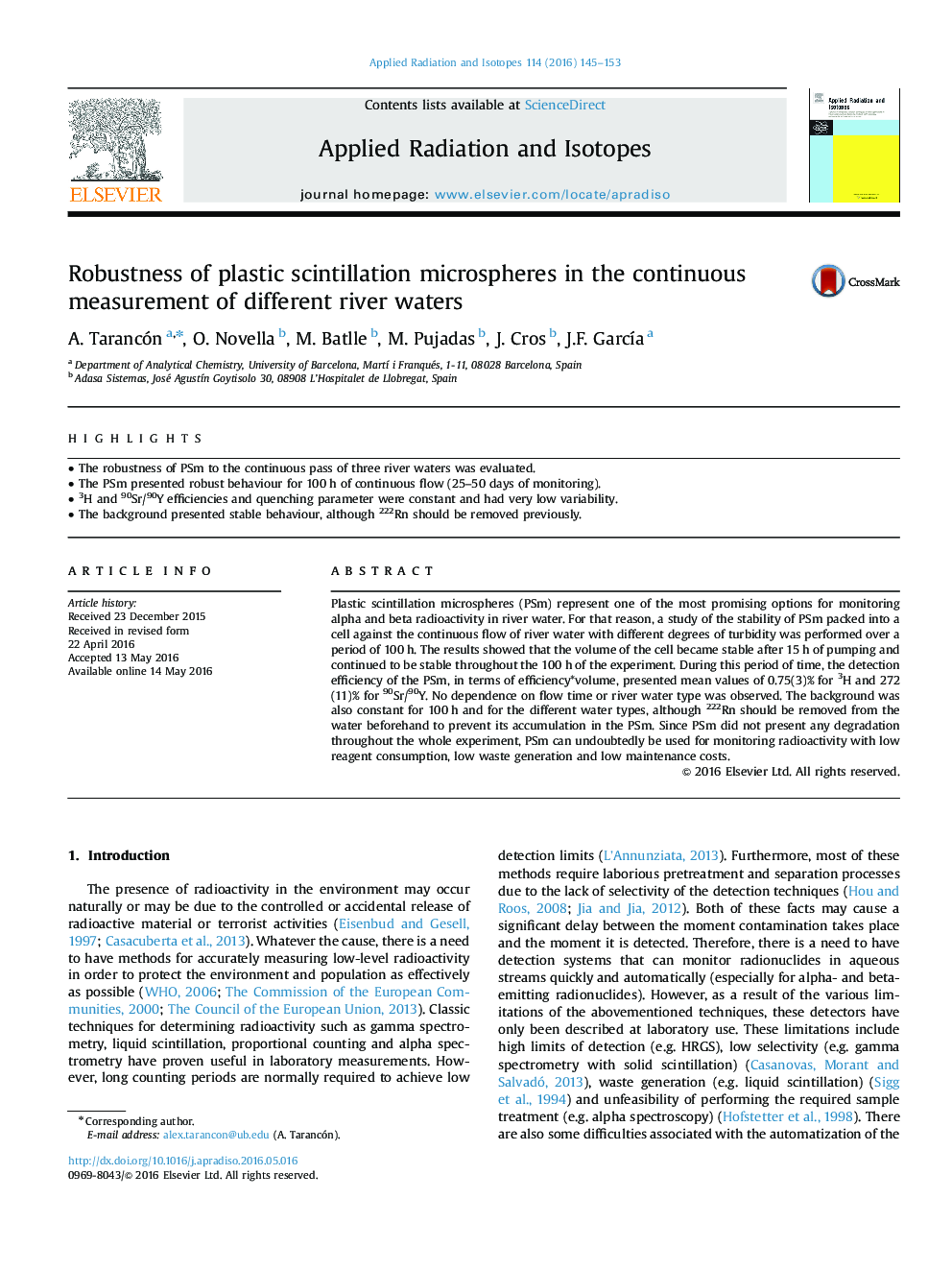| Article ID | Journal | Published Year | Pages | File Type |
|---|---|---|---|---|
| 8209173 | Applied Radiation and Isotopes | 2016 | 9 Pages |
Abstract
Plastic scintillation microspheres (PSm) represent one of the most promising options for monitoring alpha and beta radioactivity in river water. For that reason, a study of the stability of PSm packed into a cell against the continuous flow of river water with different degrees of turbidity was performed over a period of 100Â h. The results showed that the volume of the cell became stable after 15Â h of pumping and continued to be stable throughout the 100Â h of the experiment. During this period of time, the detection efficiency of the PSm, in terms of efficiency*volume, presented mean values of 0.75(3)% for 3H and 272(11)% for 90Sr/90Y. No dependence on flow time or river water type was observed. The background was also constant for 100Â h and for the different water types, although 222Rn should be removed from the water beforehand to prevent its accumulation in the PSm. Since PSm did not present any degradation throughout the whole experiment, PSm can undoubtedly be used for monitoring radioactivity with low reagent consumption, low waste generation and low maintenance costs.
Related Topics
Physical Sciences and Engineering
Physics and Astronomy
Radiation
Authors
A. Tarancón, O. Novella, M. Batlle, M. Pujadas, J. Cros, J.F. GarcÃa,
